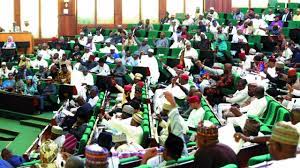Nigerian House of Representatives has asked the Central Bank of Nigeria (CBN) to stop banks from obtaining the social media handles of consumers.
During the plenary session of the lower legislative body, the motion was approved after the adoption of a motion that was submitted by nine members of the legislature.
In the directive that was sent in June, the apex bank stated that the purpose of the regulation, which is a component of the know-your-customer (KYC) processes that are followed by banks, is to reduce the risk of terrorist attacks and financial crimes and to improve the accuracy and comprehensiveness of client identification.
Read also: CBN emphasizes eNaira as digital payment option for Diasporas remittances
What CBN has to say
According to the Central Bank of Nigeria (CBN), the policy is meant to make it possible for financial institutions to collect information by accessing the online presence and activities of their customers. This will allow for a more accurate assessment of the potential risks associated with money laundering, funding of terrorism, and financing of proliferation.
Kelechi Nwogu, a congressman from Rivers, said that while the policy is admirable, it breaches section 37 of the constitution, which guarantees privacy rights. Nwogu made this statement while leading the debate on the resolution, which he sponsored.
How this new policy would affect Nigerians
He stated that the country’s banking institutions already have their clients’ names, telephone numbers, passport images, emails, national identification numbers (NIN), biometric verification numbers (BVN), utility bills, and any other basic needs necessary to identify, know, and monitor their consumers.
“As laudable as this directive may appear, it is unnecessary as it is likely to bear pressure on teeming Nigerian masses at a trying period,” he said.
According to the congressman, there are more effective ways to monitor money laundering and the financing of terrorism, some of which include the Nigeria Police Force (NPF), the Nigeria Financial Intelligence Unit (NFIU), the Economic and Financial Crimes Commission (EFCC), and various intelligence and crime tracking agencies.
“If the directive takes effect, Nigerians who are not on social media, with large turnovers from their businesses and trades, would be compelled to or systematically excluded from formal banking systems with its attendant negative effects and implications,” he said.
If the policy is put into effect, the lawmaker warned it might bring “untold hardships” for millions of Nigerians, particularly the illiterate or semi-literate company owners, dealers, and entrepreneurs who live in the villages and rural areas and do not have social media handles. These people live in places where the policy would be most likely to be put into effect.
“Implementing the CBN’s directive at this point may clearly be unnecessary as it is likely to bear a lot of pressure on teeming Nigerian masses,” he stated.
“There is a need to revisit and halt the Central Bank of Nigeria directive to reduce the hardship and pain faced by teeming Nigerians.”
After being submitted to a voice vote by Tajudeen Abbas, the speaker of the house and presiding officer, the motion was approved without a single vote being cast against it.
Stop excess charges and illegal deductions
In a separate but connected event, the House of Representatives has requested that commercial banks cease what it deems to be “excess” illegal charges and deductions from the accounts of its customers.
After the acceptance of a motion presented by Godwin Offiono, the house decided to go ahead and pass the motion.
Offiono asserted that Nigerian financial institutions engage in the “unethical practise of fleecing their customers through excess charges and unauthorised deductions” when she was moving the motion.
He stated that customers of deposit money banks are “groaning over excessive charges on their accounts” and that financial institutions have “introduced different deductions to increase their income, a development that is uncomfortable with customers.” He also stated that customers of deposit money banks are “groaning over excessive charges on their accounts.”
“Apart from stamp duty, bank customers also pay value-added tax (VAT) charges applicable on all vatable transactions in their account,” he said.
Following the passage of the motion, the legislative body made the decision to launch an investigation into the “illegal deductions” practiced by commercial banks.
